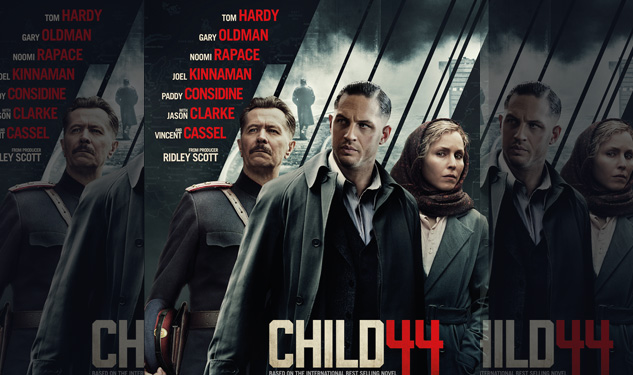
- Industry
Is a new Cold War pitting Hollywood against Russia?
Child 44 the mystery-thriller based on the novel by Tom Rob Smith set in stalinist Soviet Union was abruptly pulled from release in Russia. The Daniel Espinosa film starring Tom Hardy, Gary Oldman, Noomi Rapace and Vincent Cassel, deals with the hunt for a serial killer, but the larger villain arguably is the totalitarian state which insists the murders did not take place because “murder is strictly a capitalist crime”. The Soviet state is depicted in a fashion reminiscent of cold-war era sensibilities and that may have had something to do with the sudden change of distribution plans on the eve of the planned opening. Speculation has abounded in Russia on possible political causes although officially the decision was taken independently by the film’s distributor Central Partnership.
Which is pretty unusual considering that distributor spent a lot of money on dubbing the picture into Russian language, preparing copies for 500 theaters and printing posters. The film was also officially shown to the press. The Ministry of Culture did comment after the fact, that the film is historically incorrect and shows the Soviet people in a negative light, adding that to show it to the public just before the 70th Anniversary of the “Great Victory” would be inappropriate.
The fact comes on the heels of other troubling recent events. Egor Anisimov, a Russian Parliament member from the Liberal Democratic Party (which is neither particularly liberal nor democratic), recently proposed to ban the Russian release of films produced in the countries (U.S. included) which have declared sanctions against Russia following the takeover of Crimea from the Ukraine. The bill introduced by Anisimov in the State Duma, the lower house of the parliament, would ban the “commercial release of filmed entertainment, i.e feature films, cartoons, etc. produced in the states that have imposed sanctions against the Russian Federation”. Failure to comply with this requirement could lead to a fine of up to 2,500 rubles for company officials – and from 40,000 to 50,000 rubles for releasing companies.
“The films from the country, whose government has decided to carry out sanctions against the Russian Federation should not be considered anti-Russian by themselves” – recognizes MP Anisimov in an addendum to the documents which can be found in the electronic database of the Duma. However, continues Anisimov, “the fact of receiving profits from releasing films in Russia during the sanctions cannot be justified because the producers and other filmmakers participating in the displaying of their film productions in Russia, must be held responsible for the actions of their governments, or at least to approach the respective governments with proposals”. What kind of proposals? To lift the sanctions? “This situation is unacceptable, because it contradicts the interests of Russia”, – concludes Anisimov.
So far all attempts by Parliament or the Ministry of Culture to limit the number of foreign (read American) films released in Russia have been thwarted by the powerful distributors’ lobby and – surprisingly – by Russian president Vladimir Putin himself. Putin was quoted as saying: “If they want to watch them (Hollywood blockbusters) let them watch them”.
The only thing the Russian Ministry of Culture has so far been able to achieve is imposing different release dates on Hollywood films in order to secure the particular date for the Russian films of so called “social significance”.
Serge Rakhlin